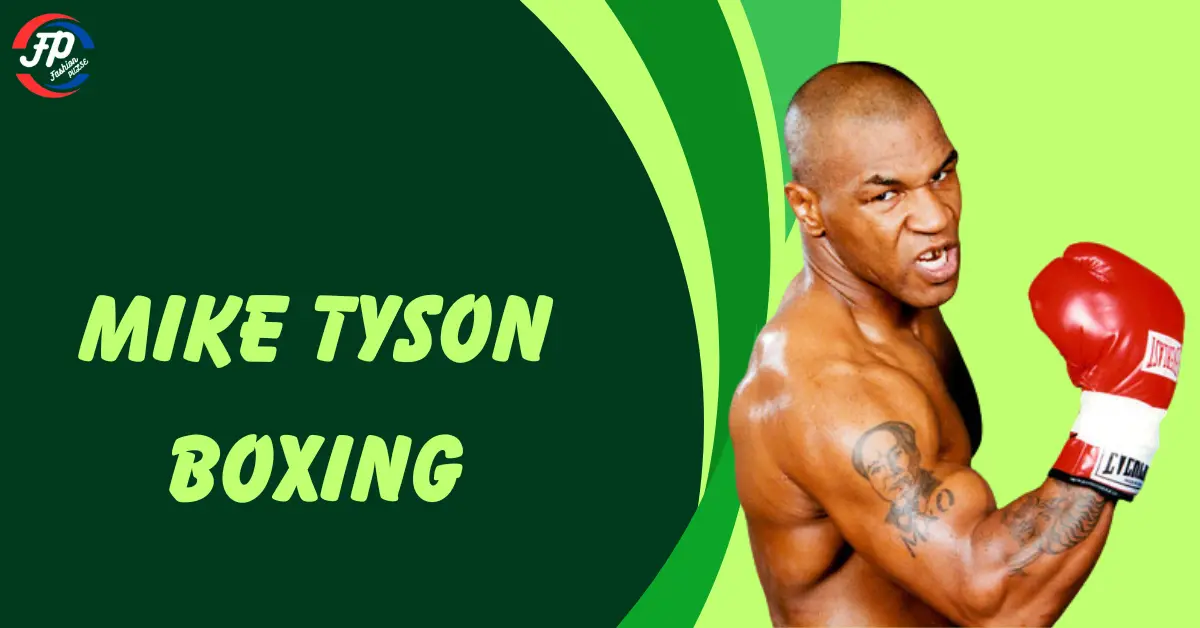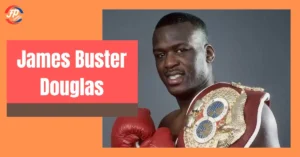Mike Tyson boxing is a very exciting story. He was a strong and fast boxer. People called him Iron Mike. He became the youngest heavyweight champion in the world. His punches were quick and powerful. Fans loved to watch his fights.
Mike Tyson boxing showed that a fighter can be both tough and smart. He had many big wins and famous knockouts. He also had some problems outside the ring, but he kept going. Today, many people still remember Mike Tyson boxing.
He changed the world of sports and inspired young athletes everywhere. His story teaches us about hard work, strength, and never giving up. Mike Tyson is a true legend in boxing.
Mike Tyson Biography
| Fact | Details |
| Full Name | Michael Gerard Tyson |
| Nickname | Iron Mike |
| Date of Birth | June 30, 1966 |
| Birthplace | Brooklyn, New York, USA |
| Famous For | Mike Tyson boxing, famous knockouts, being youngest heavyweight champion |
| First Pro Fight | March 6, 1985 |
| Championship Win | November 22, 1986 (WBC title) |
| Trainer | Cus D’Amato |
| Boxing Style | Peek-a-boo defense, fast punches, Tyson’s intimidation tactics |
| Total Fights | 58 |
| Wins | 50 |
| Knockouts | 44 (Tyson knockout record) |
| Losses | 6 |
| Famous Fights | Tyson vs Holyfield, Tyson vs Lennox Lewis, Buster Douglas upset |
| Prison Sentence | 1992 (3 years served) – (why did Mike Tyson go to jail) |
| Retirement Year | 2005 (Mike Tyson’s last fight) |
| Life After Boxing | Acting, Mike Tyson podcast, business, helping others |
| Legacy | Mike Tyson legacy changed heavyweight boxing forever |
Early Life and Rise to Fame
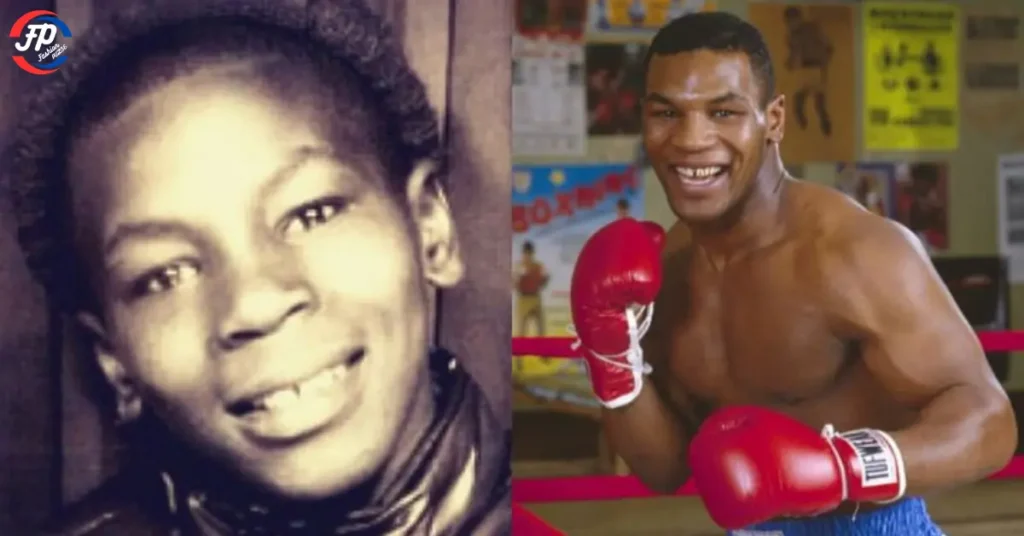
The Mike Tyson biography starts in Brownsville, Brooklyn. Born in 1966, Tyson grew up in poverty and was surrounded by violence. His father left early, and his mother struggled to raise him and his siblings. By age 13, Tyson had already been arrested dozens of times.
But everything changed when he met Cus D’Amato, a legendary trainer who became like a father to him. D’Amato saw something special in the young Tyson and took him under his wing. He taught him discipline, belief in himself, and a fierce Tyson training style that became famous for its speed and defense.
This style was part of the peek-a-boo defense, where Tyson would hold his gloves high and close, slipping punches and countering with explosive power. Tyson had his boxing debut in 1985, and the world took notice almost immediately.
He had quick victories, often finishing fights in the first round. The combination of raw power, movement, and mental toughness set him apart in the heavyweight era of the 80s, where he quickly began crushing veteran fighters and rising through the ranks.
Read More: Ryan Garcia Weight Class Breakdown: How It Impacts His Biggest Fights?
Championship Reign and Knockouts
By 1986, Tyson became the youngest heavyweight champion in history after defeating Trevor Berbick. That night, he claimed the WBC title, and soon after, he unified the belts to become the undisputed champion.
No one in the division could stand toe-to-toe with him. His punches were like sledgehammers, and his confidence in the ring made every opponent nervous before the bell even rang.
During Tyson’s peak years, he knocked out fighters like Michael Spinks, Larry Holmes, and Frank Bruno. The Tyson knockout record is impressive: out of 50 wins, 44 were by knockout.
Some of the famous knockouts were over in less than 2 minutes. Tyson didn’t just win fights, he destroyed his opponents with speed and violence.
His entrance music was just noise and silence, adding to Tyson’s intimidation tactics, and it worked. Fighters often admitted they lost before the fight even began. The Buster Douglas upset in 1990, though, shocked the world. Tyson was undefeated and expected to win easily.
But Douglas, who had just lost his mother, fought like a man possessed and beat Tyson in the 10th round. It was the end of an era, the end of Tyson’s reign as an unbeatable force.
Here is a Mike Tyson fight records table that includes his major wins, losses, and knockouts throughout his career. This simple format makes it easy to understand.
Mike Tyson Fight Records
| Fight Number | Opponent | Result | Method of Victory | Date | Title on the Line |
| 1 | John Alderson | Win | TKO (1st Round) | March 6, 1985 | None |
| 2 | Mike Jameson | Win | KO (1st Round) | March 10, 1985 | None |
| 3 | Dave Jaco | Win | KO (1st Round) | March 24, 1985 | None |
| 4 | Alfonzo Ratliff | Win | KO (1st Round) | May 3, 1985 | None |
| 5 | Mike Weaver | Win | TKO (5th Round) | May 20, 1985 | None |
| 6 | Trevor Berbick | Win | TKO (2nd Round) | November 22, 1986 | WBC Heavyweight Title |
| 7 | James Tillis | Win | Unanimous Decision | May 3, 1986 | None |
| 8 | Larry Holmes | Win | TKO (4th Round) | January 11, 1988 | WBC Heavyweight Title |
| 9 | Michael Spinks | Win | KO (1st Round) | June 27, 1988 | Undisputed Heavyweight Title |
| 10 | Evander Holyfield | Loss | TKO (11th Round) | November 9, 1996 | WBA Heavyweight Title |
| 11 | Lennox Lewis | Loss | KO (8th Round) | June 8, 2002 | WBC, WBA, IBF Titles |
| 12 | Kevin McBride | Loss | TKO (6th Round) | June 11, 2005 | None |
Controversies and Legal Troubles
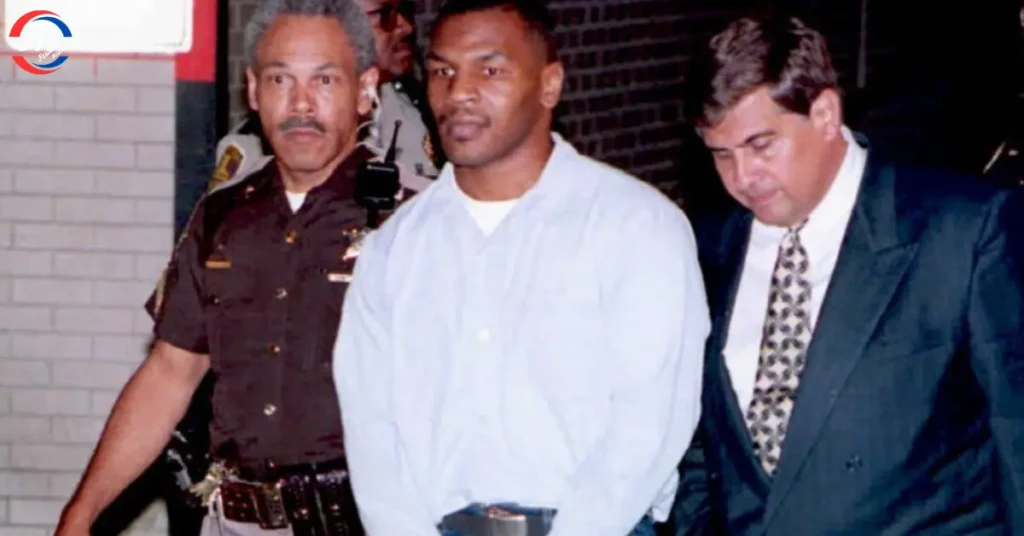
Soon after the Douglas fight, Tyson’s life began to unravel. In 1992, he was convicted of rape and sentenced to six years in prison. The case was highly publicized, and many still ask, why did Mike Tyson go to jail? The crime shook his career and personal life. While in prison, he converted to Islam and focused on rebuilding his life.
When Tyson returned to the ring, he was still dangerous, but something had changed. The most infamous moment came during the Tyson vs Holyfield ear bite in 1997. In a highly anticipated rematch, Tyson bit Holyfield’s ear in the third round, leading to his disqualification.
This event shocked fans and remains one of the most talked-about moments in boxing history. It severely hurt his image and made people question his mental state.
Comebacks and Legacy
Despite everything, Tyson kept coming back. There were many Tyson comeback fights, especially during the 1990s and early 2000s. He defeated fighters like Frans Botha and Lou Savarese, but he struggled against top-tier opponents like Lennox Lewis.
The Tyson vs Lennox Lewis bout in 2002 was another major fight in his career, but Tyson lost by knockout. His last professional fight came in 2005, a loss to Kevin McBride, marking the end of Mike Tyson’s last fight in the official ring.
Today, the Mike Tyson legacy is bigger than his wins and losses. He changed the way people saw heavyweight boxing. He inspired fighters to focus not just on power, but also on head movement, conditioning, and mindset.
He became a legend, not just because of his victories, but because of how he transformed the sport during Tyson’s most iconic fights. Tyson was inducted into the boxing Hall of Fame in 2011, which honored everything he had done for the sport.
Many fans still ask, is Mike Tyson the greatest boxer? That depends on how you define greatness. But without a doubt, Tyson left a deep impact on boxing history that can never be erased.
Life After Boxing
After retiring from the sport, Mike Tyson boxing life took many surprising turns. He appeared in movies like The Hangover, started the Mike Tyson podcast called “Hotboxin’ with Mike Tyson,” and even launched a cannabis business named Tyson Ranch.
Over the years, he became more open about his past, his mistakes, and his personal growth. His story of recovery, humility, and growth is part of Tyson’s mental health and redemption story.
He often talks about his struggles with depression, fame, and the pressure of being a global icon at such a young age. Unlike the aggressive young fighter known as Iron Mike, today’s Tyson is thoughtful, spiritual, and calm.
But even now, rumors like Mike Tyson vs Jake Paul continue to spark interest, proving his name still draws attention.
Mike Tyson’s Influence on Modern Boxing
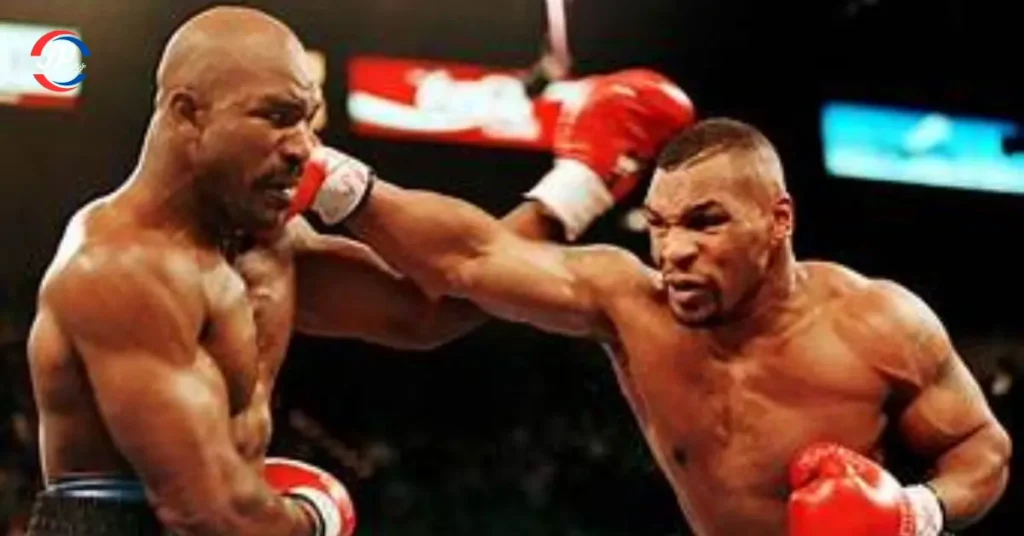
The impact of Mike Tyson boxing culture is massive. He influenced not only how fighters train but also how boxing is promoted. His style, speed, and mental warfare made him a blueprint for future fighters.
Younger boxers now study Tyson fight highlights to learn about head movement, power generation, and confidence. Fighters like Gervonta Davis and even MMA stars have copied pieces of the breakdown of Tyson’s fighting style to improve their own game.
He also made boxing exciting again in the 80s and 90s when the sport needed a star. The way he fought, the fear he brought, and the records he broke reshaped the idea of a heavyweight champion.
His presence in video games, movies, and music is proof of Tyson’s influence on boxing and pop culture. Mike Tyson boxing will always be remembered. His story teaches us to be strong, brave, and never stop trying.
Mike Tyson’s Social Media Influence
| Platform | Activity | Impact | Followers (Approx.) |
| Posts updates on life, personal thoughts, and interactions with fans | Engages with fans, shares motivational thoughts, and controversial opinions | 5.5 Million+ | |
| Shares photos of his life, workouts, and events | Gives followers a behind-the-scenes look into his life, shares fitness content and family | 21.7 Million+ | |
| YouTube | Mike Tyson Podcast (Hotboxin’) | Hosts interviews with celebrities, athletes, and motivational speakers | 1.5 Million+ |
| Posts content on boxing, fitness, and personal life | Connects with fans and promotes his products and businesses | 6 Million+ | |
| TikTok | Shares fun videos, clips from his podcast, and fitness tips | Reaches younger audiences, showcases his sense of humor and quick training tips | 1.5 Million+ |
FAQs (Schema Boost)
>>What made Mike Tyson so powerful?
Tyson’s power came from his explosive speed and precise technique. His Tyson training style, which included fast head movement and strong counterpunching, made him incredibly dangerous in the ring.
>>Did Mike Tyson ever fight Muhammad Ali?
No, Mike Tyson never fought Muhammad Ali. By the time Tyson became a champion, Ali had already retired, though both are considered legends in boxing history.
>>Did Mike Tyson retire permanently?
Mike Tyson retired from professional boxing in 2005 after his loss to Kevin McBride. However, he made a return to the ring for an exhibition fight against Roy Jones Jr. in 2020.
>>What did Tyson say about his mental health?
In recent years, Mike Tyson has been open about his struggles with mental health and the pressures of fame. He has discussed how therapy and personal growth helped him find peace.
>>How did Tyson lose his title to Buster Douglas?
Tyson lost to Buster Douglas in 1990 because of a combination of factors: Tyson was out of shape, underprepared, and Douglas fought the fight of his life. The loss was a shocking moment in boxing history.
>>What happened during the Tyson vs Lennox Lewis fight?
In 2002, Mike Tyson faced Lennox Lewis for the undisputed heavyweight title. Tyson lost the fight by knockout in the 8th round, marking a low point in his career.
>>Is Mike Tyson still involved in boxing today?
Although retired from professional boxing, Mike Tyson remains involved in the sport. He frequently shares insights through his podcast, Mike Tyson Podcast, and participates in public events related to boxing.
Conclusion
Mike Tyson boxing is a story of power, speed, and courage. He became a great boxer at a young age. His strong punches and quick moves helped him win many fights. Even though he had some problems, he kept going.
Mike Tyson boxing shows us how hard work and practice can lead to success. He became a famous champion and inspired many young athletes. People still talk about his big knockouts and strong spirit.
Mike Tyson boxing changed the world of sports and made history. He is known as a true legend in boxing. His story teaches us to be brave, stay strong, and never give up on our dreams.



